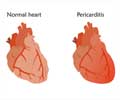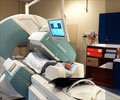Lifestyle Risk - Diet and Heart Attack
Excess weight in the form of fat can lead to conditions such as high
A diet that regularly includes fruits, vegetables, low fat dairy products and whole grains is good for the heart. Legumes such as beans, peas, lentils, low fat protein such as lean meat and certain types of fish rich in Omega 3 fatty acids can reduce the risk of heart attacks. For a normal person (without diabetes), it is good to include at least five servings of

Gaining weight in adulthood is mostly in the form of fatty tissue. Excess weight in the form of fat can lead to conditions such as high
Fats in diet can be classified as saturated, monounsaturated, polyunsaturated and
A type of polyunsaturated fat called Omega-3 fatty acids is known to cut down the risk of
A heart-healthy diet also includes cutting down on heavy drinking of alcohol. Men should cap it with two drinks per day while women should restrict themselves to just one. Studies done in the West show that at this moderate level, alcohol can even protect the heart whereas anything above this level poses a serious threat to the heart.
Researchers all over the world are trying to find healthy alternatives for addictive food and drinks that retain the preferred taste and flavor and can still prevent heart disease. In a recent study published in the journal Nutrition researchers from the University of Valencia in Spain have claimed that alcohol-free beer can lower cholesterol levels in women and protect the heart. According to the study, alcohol-free beer reduces potentially dangerous accumulation of fat in the arteries and raises levels of
People often send queries to the health and wellness section in newspapers, magazine and TV shows as to what type of food they should give up in order to remain heart- healthy. Truth is, if you don’t have a particular health problem such as high blood pressure or
Eating a heart-healthy diet, quitting smoking and the habit of consuming excessive alcohol, getting into a physical regimen that is regular and moderately vigorous, maintaining a healthy weight, getting regular health screenings done, and utilizing some effective ways of stress management will surely guarantee a healthy life free from heart diseases.
























